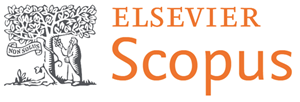Facilities Management Practice in Traditional Pondok Institution in Malaysia
DOI:
https://doi.org/10.24191/bej.v22iSI.6494Keywords:
Pondok Institution, Facilities Management Barrier, Challenges, Effective FMAbstract
The Pondok educational system, one of the earliest in the Malay Archipelago, focused on Islamic studies. Since then, the development of the Pondok required more attention in many aspects. However, limited studies have been conducted on these issues, mainly due to a lack of awareness regarding the need of proper facilities management in Pondok Institution in Malaysia. This research aims to propose practical strategies to improve facilities management practice in traditional Pondok institutions. There are two objectives for this research. First, to examine the barriers in managing the facilities provided in Pondok institution. Second, to propose practical, effective facilities management in Pondok institution. A quantitative approach is used in this research. The data was collected by using questionnaire surveys to meet the objectives. The result of the study found that a holistic strategic approach to acknowledge the barrier as well as enhance the legislative, management and guidelines are needed for the Pondok institutions to ensure the effectiveness of facilities management planning can be achieved. It is hoped that the study can contribute to the improvement of effective planning of facilities management to the Pondok institutions in Malaysia.
References
Ahmad, N., Alias, F. A., & Abdul Razak, N. A. (2023). Understanding population and sample in research: Key concepts for valid conclusions. SIG: e-Learning@CS, 19–24. https://appspenang.uitm.edu.my/sigcs/2023-2/Articles/20234_UnderstandingPopulationAndSampleInResearch.pdf
Amelia, D. J., Anshory, I., & Herviani, V. K. (2022). Analysis of facilities management on inclusion education school in Batu City. Journal of Science and Education (JSE), 2(2), 99–110. https://doi.org/10.56003/jse.v2i2.110
Amie-Ogan, O. T., & Bikiya, S. (2020). Educational facilities management for public secondary schools academic improvement in the 21st century. International Journal of Innovative Social & Science Education Research, 8(1), 111–120.
Bonett, D. G., & Wright, T. A. (2014). Cronbach’s alpha reliability: Interval estimation, hypothesis testing, and sample size planning. Journal of Organizational Behavior, 36(1), 3–15. https://doi.org/10.1002/job.1960
Chkheidze, S. (2023). Facility management in education. American International Journal of Business Management (AIJBM), 6(6), 44–46. https://www.aijbm.com/wp-content/uploads/2023/06/E664446.pdf
Earthman, G. I. (2002). School facility conditions and student academic achievement. Williams Watch Series: Investigating the Claims of Williams v. State of California. UCLA’s Institute for Democracy, Education, and Access. https://escholarship.org/uc/item/5sw56439
Etikan, I., Musa, S. A., & Alkassim, R. S. (2016). Comparison of convenience sampling and purposive sampling. American Journal of Theoretical and Applied Statistics, 5(1), 1–4. https://doi.org/10.11648/j.ajtas.20160501.11
Fatmawati, N., Mappincara, A., & Habibah, S. (2019). Pemanfaatan dan pemeliharaan sarana dan prasarana pendidikan. PEMBELAJAR: Jurnal Ilmu Pendidikan, Keguruan, dan Pembelajaran, 3(2), 115–121. https://doi.org/10.26858/pembelajar.v3i2.9799
Fazial, F., & Bahari, Z. (2018). Problems faced by the pondok institutions in funding development. International Journal of Academic Research in Business and Social Sciences, 8(6), 1313–1320. https://doi.org/10.6007/IJARBSS/v8-i6/4536
Filardo, M. (2008). Good buildings, better schools: An economic stimulus opportunity with long-term benefits. Economic Policy Institute. https://www.epi.org/publication/good-buildings-schools-economic-stimulus/
Hashim, R., Rufai, S. A., & Mohd Nor, M. R. (2011). Traditional Islamic education in Asia and Africa: A comparative study of Malaysia’s pondok, Indonesia’s pesantren and Nigeria’s traditional madrasah. World Journal of Islamic History and Civilization, 1(2), 94–107.
Kamaruzzaman, S. N., & Zawawi, E. M. (2010). Development of facilities management in Malaysia. Journal of Facilities Management, 8, 75–81. https://doi.org/10.1108/14725961011041184
Mohd Zain, R. (2019). The impact of facilities on student’s academic achievement. Scientific International (Lahore), 30(2), 299–311.
Mong, S. G., Mohamad, S. F., & Misnan, M. S. (2019). Current issues and barriers of maintenance management practices for public facilities in Malaysia. International Journal of Engineering and Advanced Technology, 8(5C), 1–6.
Mucai, E. W. (2013). Availability and utilization of educational resources in influencing students’ performance in secondary school in Mbeere South, Embu County, Kenya (Unpublished master’s thesis). Kenyatta University, Kenya.
Mydin, M. M., & Ahmad, N. S. (2014). The system of Islamic studies at madrasah (sekolah pondok). Journal of Mechanical Manufacturing (J-Mfac), 1, 1–6.
Neuman, W. L. (2006). Social research methods: Qualitative and quantitative approaches (6th ed., J. Lasser, Ed.). Pearson Education Inc.
Nik Mat, N. E. M., Kamaruzzaman, S. N., & Pitt, M. (2011). Assessing the maintenance aspect of facilities management through a performance measurement system: A Malaysian case study. Procedia Engineering, 20, 329–338. https://doi.org/10.1016/j.proeng.2011.11.175
Parnwell, R. N. (2015). Influence of school infrastructure on academic performance in public primary schools in Ruiri Location, Meru County, Kenya (Master’s thesis). University of Nairobi.
Salleh, N. A., Abdul Talib, Y., Ismail, K., & Alauddin, K. (2021). Challenges in maintaining facilities in elderly Pondok village environment. IOP Conference Series: Earth and Environmental Science, 881(1), 012039. https://doi.org/10.1088/1755-1315/881/1/012039
Downloads
Published
Issue
Section
License
Copyright (c) 2025 Muhammad Shahrol Hafiz Ibrahim, Yuhainis Abdul Talib, Nor Aini Salleh, Mariah Awang, Pangiran Shafiq Pangiran Julaini

This work is licensed under a Creative Commons Attribution-NonCommercial-NoDerivatives 4.0 International License.
CC BY-NC-ND 4.0 DEED
Attribution-NonCommercial-NoDerivs 4.0 International















